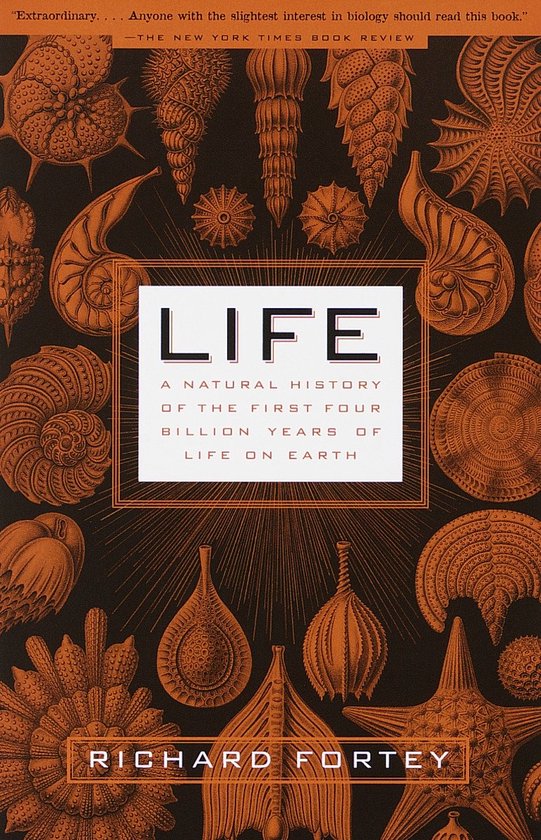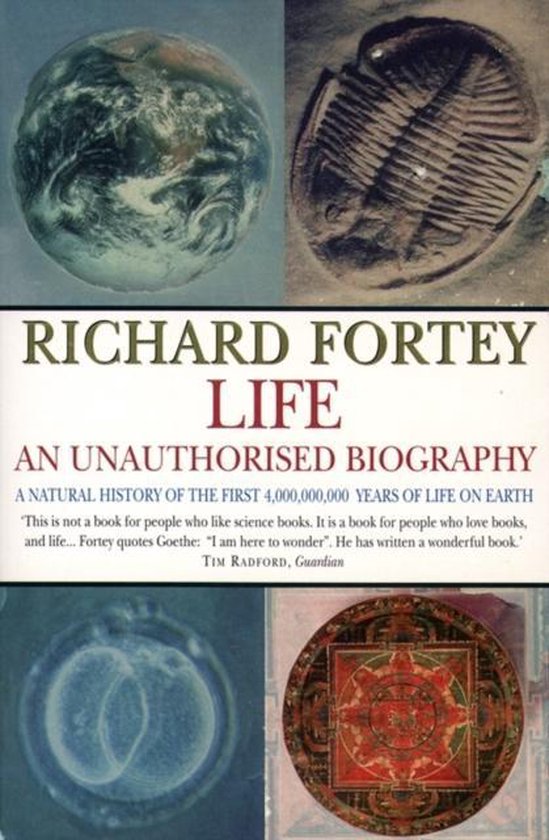Life an unauthorized biography

Op voorraad. Voor 15:00 uur besteld, woensdag in huis
A magisterial exploration of the natural history of the first four thousand million years of life on and in the earth, by one of Britain’s most dazzling science writers.
What do any of us know about the history of our planet before the arrival of man? Most of us have a dim impression of a swirling mass of dust solidifying to form a volcanic globe, briefly populated by dinosaurs, then the woolly mammoths and finally our own hairy ancestors.
This book, aimed at the curious and intelligent but perhaps mildly uninformed reader, brilliantly dispels any such lingering notions forever. It guides us from the barren globe spinning through the very earliest signs of life on the rims of volcanoes, the appearance of cells, the creation of an atmosphere and the myriad forms of plants and animals (happily including dinosaurs) which could then evolve and be sustained, right up to the first appearance of 'homo sapiens'. But it is not simply what Richard Fortey has to tell us that makes this book so distinctive. His grasp of the significant detail and his power of allusion mark him as one of the finest explicators; his book seeks to entertain his readers as much as to inform them. The result is enthralling.
"Read this book because it is, indeed, the best natural history of the first four billion years of life on earth."
JOHN GRIBBIN, 'Sunday Times'
"Fortey writes beautifully and this is a wonderful biography of rock and life…He has restored paleaontology to its rightful place in the pantheon."
LEWIS WOLPERT, 'Observer'
"Richard Fortey is a scientist…but his big, rich history of four billion years of evolution is written with an artist's zest for life and language…There is a Darwinian grandeur of imagination in his retelling of the history of our planet, from the first solidifying of debris circling the sun, across the long millenia…Anyone who wants to understand how we came to be here on earth, 4,000,000,000 years after life began, should read this sparkling book."
MAGGIE GEE, 'Daily Telegraph'
"Richard Fortey is something much rarer than an eminent palaeontologist. He can write too…The tale of life needs constant retelling. Thank some happy accident of history that we have Fortey to tell it to us anew."
TED NIELD, 'New Scientist'
- 1 Bekijk alle specificaties



Taal: en
Bindwijze: Hardcover
Oorspronkelijke releasedatum: 24 juli 1997
Aantal pagina's: 416
Illustraties: Nee
Hoofdauteur: Richard Fortey
Tweede Auteur: Richard Fortey
Hoofduitgeverij: HarperCollins Publishers Ltd
Product breedte: 159 mm
Product hoogte: 29 mm
Product lengte: 240 mm
Studieboek: Nee
Verpakking breedte: 159 mm
Verpakking hoogte: 29 mm
Verpakking lengte: 240 mm
Verpakkingsgewicht: 270 g
EAN: 9780002555609